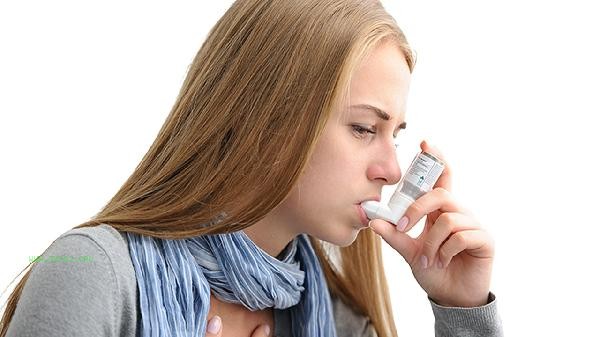Menopause may cause coughing and wheezing, usually related to hormonal fluctuations, autonomic nervous system dysfunction, and other factors. Menopausal cough and asthma may be caused by hormonal changes, respiratory sensitivity, psychological stress, chronic inflammation, and decreased cardiovascular function.

1. Hormonal changes
The decrease in estrogen levels in menopausal women may lead to dry respiratory mucosa and trigger irritating cough. Estrogen has a regulatory effect on respiratory smooth muscle, and its reduction may increase airway hyperresponsiveness. Some women may experience chest tightness and asthma like symptoms, but without typical inflammatory markers of asthma.
2. Respiratory Sensitivity
Hormonal fluctuations may make the respiratory tract more sensitive to irritants such as cold air and dust. This sensitive cough often manifests as paroxysmal dry cough, aggravated at night or in the morning, and is significantly associated with environmental changes. Maintaining indoor humidity and avoiding exposure to irritants such as smoke can help alleviate symptoms.
3. Psychological stress
Menopausal anxiety and depression may trigger psychogenic cough through neural reflexes, manifested as frequent clearing of the throat or shallow breathing without clear causes. Emotional fluctuations can also lead to hyperventilation syndrome, resulting in symptoms such as shortness of breath and chest compression. Psychological counseling and respiratory training have significantly improved these symptoms.

4. Chronic inflammation
Long term low-grade inflammatory response is a common pathological change in menopause, which may involve respiratory mucosa. This type of cough is often accompanied by a sensation of foreign body or sticky phlegm in the throat, but without clear signs of infection. Proper supplementation of vitamin D and omega-3 fatty acids can help alleviate inflammatory reactions.
5. Decreased cardiovascular function
Decreased estrogen levels may affect cardiovascular regulatory function, leading to decreased exercise tolerance. The occurrence of shortness of breath during mild activity may be related to decreased diastolic function of the heart, and potential myocardial ischemia needs to be investigated. This condition is often accompanied by systemic symptoms such as palpitations and fatigue, which are different from the manifestations of simple respiratory diseases.

When menopausal women experience persistent coughing and wheezing, it is recommended to record the time and cause of symptom onset, and maintain moderate aerobic exercise to enhance cardiovascular and pulmonary function. In terms of diet, foods rich in plant estrogens and anti-inflammatory ingredients such as soy products and deep-sea fish can be added. If the symptoms affect the quality of life or are accompanied by symptoms such as hemoptysis and paroxysmal dyspnea at night, timely lung function and electrocardiogram examinations should be performed to rule out organic diseases. Daily regulation of autonomic nervous system function can be achieved through abdominal breathing training, meditation, and other methods to avoid excessive reliance on cough suppressants.




Comments (0)
Leave a Comment
No comments yet
Be the first to share your thoughts!